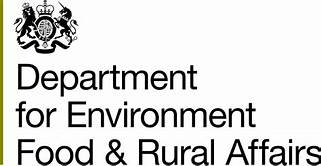By Kirsty Coleman-
The Department for Environment, Food and Rural Affairs have released a notice on 14th February to announce UK estimates calculated to comply with EU legislation regarding UK waste.
The EU’s target is for the UK to recycle at least 50% of household waste by 2020. In 2017, the UK recycling rate for household waste was 45.7%, but when we look at the different countries in the UK, Wales easily leads the way as they recycled 57.6% of household waste, compared to Northern Ireland 46.3%, England 45.2% and Scotland in last place with just 43.5%. Policies by the Welsh government set targets high by aiming for zero waste by 2050, whilst England, Scotland and Northern Ireland are still lagging behind, making the 2020 target look less attainable. It begs to question why the UK has not cohesively adopted the same policies regarding waste management, such as following Wales’ example, to ensure reaching the EU’s target and most importantly showing their commitment to protect the planet’s future.
PICKING HOLES IN PLASTIC
Why is the nation picking holes in plastic? With plastic now being used as an everyday source as a result of its production beginning in the 1950’s, it is now severely damaging the planet which humans live on as it takes so long to recycle. If the amount being used is not significantly reduced, sea creatures will become over-ruled by plastic, literally, as it has been predicted that by 2050 there will be more plastic than fish; a hard-hitting prediction, and hopefully a realisation for some, that extreme action needs to be taken. Reusable straws and paying for plastic bags in an attempt to reduce usage, is simply not going to cut it as many are blissfully ignorant to how dreadfully the planet is being treated by its inhabitants, humans.
There are still issues regarding recycling plastic. A large proportion of the general public do not recycle properly, as a possible result of confusing labelling and lack of effort to check what can/cannot be recycled. Not all plastic is recyclable; some is widely recycled; some is only locally recycled and some is not recyclable at all. With the population being encouraged to eat more fresh produce, it is strange how fruits and vegetables are widely packaged in non-recyclable plastic. This further goes against the UK government when determining their commitment to recycling.
HOW PLASTIC AFFECTS WILDLIFE
Plastic manages to reach all areas of our environment; parks; nature reserves; rivers; all the places wildlife inhabits. This often results in serious injury and even death of the wildlife, which is unacceptable, particularly as humans have already invaded and destroyed vast amounts of their homeland. Cows die from eating plastic bags which have travelled into their grazing grounds, sea turtles often mistake plastic bags for jellyfish, just as many other animals mistake plastic for food. Everything on planet Earth works in conjunction with one another and when this is manipulated, it affects the planet, as it is currently doing so. A damaged world with polluted rivers, minute species of wildlife, and limited plantation, is not sustainable, nor will it be enjoyable.
HOW SUPERMARKETS ARE HELPING
Marks and Spencers have fairly recently introduced new bins in eight of their stores, which allow the public to recycle their “non-recyclable”, plastics; they are deemed “not recyclable”, by local councils, not by the impossibility to recycle them. The large chain also has a plan to provide these bins nationwide in their shops by the end of the year. To further their efforts, they will be using the plastic sourced from these first eight bins, in order to make forthcoming bins. The supermarket is also trialling loose fruit and veg in their Tolworth, South-West London store, and have pledged to phase out plastic bar-codes in all of their stores.
Morrisons have also been reducing their plastic for some time now, encouraging customers to bring their own containers for products from the fishmonger counter, providing paper bags for fruit and vegetables and they have recently introduced the option to buy paper carrier bags, at the same time as increasing the price of plastic bags again. Strangely, however, the price of the more environmentally-conscious paper bag costs slightly more. Should plastic bags be completely banned?
Constructive ideas from well-known shops like these make a great contribution to preventing plastic wastage because of the platform which they hold, giving them the ability to promote a small change and help it go national, however supermarkets cannot save the world alone.
COMMITMENT
As Earth’s inhabitants, protecting this planet should be priority but it seems to be a slow process for the UK to increase its recycling rates as a whole. In 2010, the UK’s recycling rate was 40.4% and this slowly increased over the years to 45% in 2017 with relapses in between. For example, in 2014 the recycling rate was at its highest of 44.9% but lowered to 44.2% in 2015; it then took a total of three years for the UK to surpass its previous highest recycling rate. These figures alone show how the United Kingdom has in the past, lacked real commitment to improving waste management and demonstrates how they seem to be constantly playing catch up when it comes to meeting targets. Is the UK now making a u-turn to recycle properly, or are the supermarkets’ examples as far as it goes for the nation?




